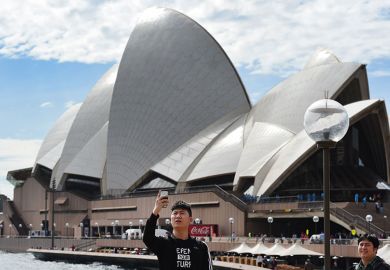Australian higher education appears condemned to more policy uncertainty, as an extraordinary implosion by the ruling Liberal Party plunges the country into a political quagmire.
The fault line between the party’s moderate and conservative cliques – the legacy of prime minister Malcolm Turnbull’s 2015 unseating of predecessor Tony Abbott – has widened into a chasm this week, with Mr Turnbull narrowly surviving a leadership vote on 21 August.
He has vowed to call another meeting at midday on 24 July – and not to recontest his position – provided that his opponent, home affairs minister Peter Dutton, produces a document showing that a majority of the party’s MPs want the issue revisited.
Mr Turnbull’s position looks untenable after the leader of the government in the senate, Mathias Cormann, resigned his cabinet position along with his deputy Mitch Fifield and 10 other ministers and assistant ministers.
The conservative Mr Dutton appears almost certain to battle treasurer Scott Morrison and moderate foreign affairs minister Julie Bishop for the top job. Whoever wins could have a very short tenure, with the government – that has a majority of just one seat in parliament’s executive chamber, the house of representatives – likely to face an imminent election.
Mr Turnbull has pledged to resign his seat if he loses his position, and at least one lower house MP has committed to quit the governing coalition if there is a leadership change.
Other members of the junior coalition partner, the National Party, have cast doubt over their continued support for the alliance – as have two independent and minor party MPs, whose votes may prove decisive if the government loses its majority.
Complicating matters even further, there are questions over Mr Dutton’s eligibility to sit in parliament, because he has business interests in childcare centres that receive government subsidies – potentially in breach of a constitutional ban on MPs benefiting financially from the Commonwealth. The solicitor-general has been instructed to provide urgent advice on this.
Education minister Simon Birmingham, a key Turnbull backer, has been teleported into the position of government leader in the upper house. But he is almost certain to be relegated should Mr Dutton win the leadership, shunting higher education into a new policy void.
A victory by Mr Dutton, a hardliner as immigration minister, could also increase downward pressure on the number of international students. On Monday The Australian newspaper reported then citizenship and multicultural affairs minister Alan Tudge, a Dutton backer, tipping a fall in overseas student numbers next year.
While international tuition fees bankroll more than one-fifth of universities’ operations, the Labor opposition has also flagged a possible cap on foreign student numbers over perceptions that temporary migration arrangements are being abused.
Labor has also pledged to hold a UK-style review of post-school education, and to reinstate the demand-driven higher education system abandoned by the government last December. But it has not outlined how it would pay for the reversal, triggering fears of a decline in per-student funding.
Register to continue
Why register?
- Registration is free and only takes a moment
- Once registered, you can read 3 articles a month
- Sign up for our newsletter
Subscribe
Or subscribe for unlimited access to:
- Unlimited access to news, views, insights & reviews
- Digital editions
- Digital access to THE’s university and college rankings analysis
Already registered or a current subscriber?








